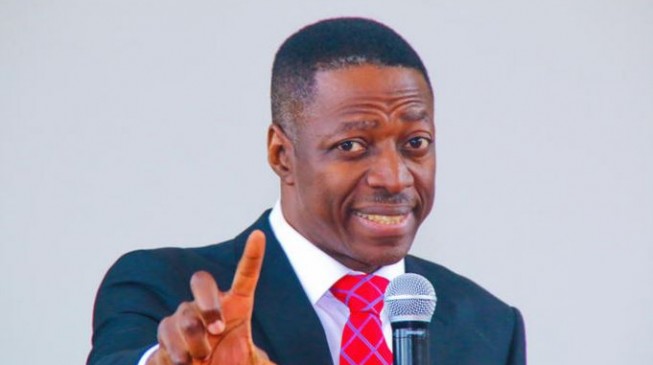
He said it was important for the older generations, including the political and religious leaders to retrace their steps and get the country working because the younger generation would soon begin asking questions.
Speaking on Channels Television’s Sunrise Daily on Tuesday, the cleric said it would be tougher to lead the younger generation if the needed development is not in place.
He also said Nigerians must agree on where the country should go and the destination in achieving the desired change and development.
The elite class – those of us who belong to this class – need to begin to discuss among ourselves and honestly, we need to act with urgency and I need to plead with those of us in the elite class and I am talking about everyone who has been able to walk their way to the top and fairly comfortable and I am talking about people of the highest level in the political class at the National Assembly, the governors, state house assembly and so on. I am talking of those of us in the business sector and those who are heads of religious institution
“It will be in our self-interest to get Nigeria to work now because the younger generation is more enlightened and have access to more information and they are not going to keep silent for long. It will get rougher and rougher to lead because they will demand accountability and good leadership.
“Secondly, the level of suffering is increasing exponentially. So, we don’t need to sit down until the country runs into crisis and many things can create a serious crisis for us as a nation and when we watch and maybe war breaks out in the country, the elite class is the first to take flight and run away but then everything you’ve been building can go off in smoke.
“We need to act in urgency and to pull together and push for a discussion to ask ourselves where is Nigeria going to; what value will get us there; what system of government and what structure will take us there.”
The PUNCH had on August 11, 2023, reported that Adeyemi decried the huge gap between the leaders and the masses, saying it is a peculiar problem in Africa.
He said African countries are dealing with a deeply rooted leadership culture that makes the leader very powerful and the followers practically a slave, across almost all sectors.
“We are dealing with a deeply rooted leadership culture that makes the leader very powerful and the led practically a slave, across almost all sectors. The issue with culture, like habits, is that though people desire change, they will default to their old ways, consciously or unconsciously, when they have to make choices, and they will ultimately produce the same results.
“The only way out is to intentionally replace old beliefs and behaviours with new ones. Only those with the sophistication to shift beliefs, values and culture on a mass scale can lay the foundation for meaningful change, especially for a country. The platforms would be high-quality education, the example of leaders, economic empowerment, infrastructure, and so on.
“Truth be told: democracy has thrived best in countries that value life and equality. The power gap has collapsed and being a leader does not make you superior to the people you lead. In fact, being a leader is understood to be a call to serve the led and leaders don’t consume most of the resources meant for the commonwealth,” he had said.




